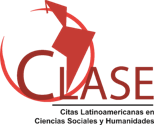INDICATIONS OF THE WORLD BANK’S “A FAIR ADJUSTMENT” REPORT TO PUBLIC EDUCATION IN BRAZIL
a critical analysis
DOI:
https://doi.org/10.18764/2178-2229v29n1.2022.18Keywords:
School Education, Public school, Neoliberalism, World BankAbstract
An analysis of the Brazilian reality shows us how the country’s adherence to neoliberalism went beyond the purely economic sphere and became part of the formulation and development of public policies, including education, with the incisive influence of the World Bank. In this sense, it is relevant to investigate the recent guidelines that this institution has indicated for the educational scenario in Brazil, in particular, for basic education. In this article, we propose, based on Historical-Dialectical Materialism, to analyze elements of the World Bank Report entitled “A Fair Adjustment” on primary and secondary education, published in 2017 at the request of the federal government, identifying its determinations for public school education. The data indicate, on the one hand, the mischaracterization of the real problems existing in the social practice of public schools, reducing them to the logic of capital in the sense of inferring the supposed need to reduce financial resources and, on the other, the overwhelming accountability of teachers due to school failure and excessive expenses, in the view of the document.
Downloads
Downloads
Published
How to Cite
Issue
Section
License
Copyright (c) 2022 Cadernos de Pesquisa

This work is licensed under a Creative Commons Attribution 4.0 International License.
A Cadernos de Pesquisa está licenciada com uma Licença Creative Commons Atribuição 4.0 Internacional.




















